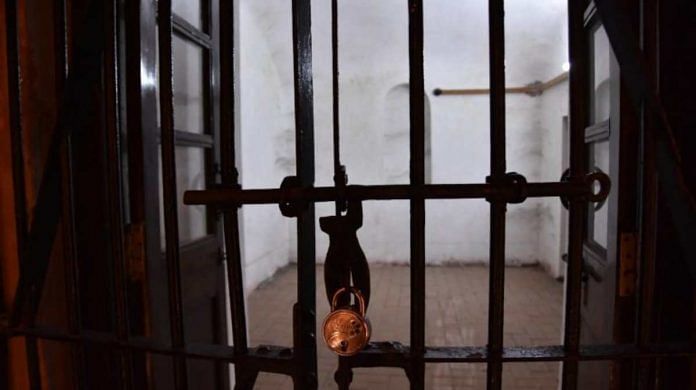New Delhi: At a time when the Narendra Modi government is planning to decriminalise personal consumption of small quantities of drugs including cannabis, narcotics and psychotropic substances, official data has revealed that over 10 per cent of all jailed undertrials in India are accused under the Narcotic Drugs and Psychotropic Substances (NDPS) Act, 1985.
There are currently 2,58,883 jailed undertrials in India, of which the NDPS Act alone accounts for 27,072 prisoners.
Among the 71,513 undertrials jailed under special and local laws, 41,985 or 58.7 per cent are under laws related to liquor and narcotic drugs. This number includes those accused under provisions of the NDPS Act, 1985; the Excise Act; and liquor prohibition laws.
The NDPS Act accounts for the fourth-highest number of jailed undertrials for any crime, after murder (65,184), rape (34,368) and theft (30,606).
The Prison Statistics India report includes data from 1 January 2019 to 31 December 2019, as furnished by the prison departments of all states and union territories to the National Crime Records Bureau. The report for 2020 is yet to be released.
For reference, the category of special and local laws is a broad one, including laws governing crimes against women like the Dowry Prohibition Act and Immoral Traffic (Prevention) Act; those governing crimes against Scheduled Castes and Scheduled Tribes like the SC/ST (Prevention of Atrocities) Act and the Protection of Civil Rights Act; laws on arms and explosives, gambling laws, foreigner and passport-related laws, and other miscellaneous ones.
Also read: ‘Difficult to prove conspiracy, only conspirators know’: What NCB said to oppose Aryan Khan bail
140% increase in 11 years
Among other things, the bail provision under NDPS Act has faced immense criticism over the past few years. Section 37 of the Act requires the court to have “reasonable grounds” to believe that the accused is not guilty and that he is unlikely to commit another offence while on bail. Not even the much-scrutinised Unlawful Activities (Prevention) Act (UAPA), 1967, has any such pre-condition, as the Supreme Court acknowledged in February this year when it called the bail provision under UAPA “comparatively less stringent” than that under NDPS Act.
A look at the prison statistics data from 2009 to 2019 shows that there has been a 140 per cent increase in the number of undertrial prisoners under the NDPS Act, from 11,279 in 2009 to 27,072 in 2019. As for convicts, there has been a 40 per cent increase, from 6,156 in 2009 to 8,739 in 2019.
Official data on whether these undertrials are facing allegations of personal drug use or trafficking isn’t available, but a study on the application of Section 27 of the NDPS Act — which criminalises drug use — in Mumbai found that 93.3 per cent of all arrests under the Act in 2020 were for consumption.
Death penalty, rehabilitation
It’s widely believed that the Indian government enacted the NDPS Act in 1985 under international pressure, especially with the ‘War on Drugs’ campaign launched by then-U.S. President Richard Nixon in the 1970s.
The law has since been amended thrice — in 1989, 2001 and 2014. Among other things, the 1989 amendment added a provision introducing a mandatory death sentence for a second conviction for drug trafficking. The Bombay High Court declared this provision unconstitutional in 2011. After this, the law was amended in 2014 to allow the death penalty at the discretion of a judge.
The law does make a distinction between drug traffickers and consumers, allowing the latter to be diverted to rehabilitation. For instance, Section 39 of the Act allows courts to release an addict for treatment if found guilty of possession or consumption of drugs.
However, there is evidence to show that courts have not put these provisions to good use. For instance, a study showed that between 2013 and 2015, no person brought before the courts in Punjab was directed to de-addiction and rehabilitation through the courts.
Also, Section 64A of the law grants immunity to certain addicts, if they volunteer to undergo medical treatment for de-addiction from a government-recognised hospital or institution. The addict must undergo the complete treatment for this to apply.
This is exactly what Bollywood actor Fardeen Khan did after he was arrested in 2001 from Mumbai on charges of attempting to purchase small quantities of cocaine. However, this immunity was granted only in 2012, after he underwent a three-week-long de-addiction programme at the KEM Hospital in Parel, Mumbai.
(Edited by Rohan Manoj)
Also read: NCB is high on NDPS — the law with loopholes. Rhea Chakraborty to Aryan Khan



